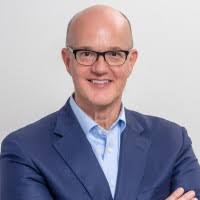Most people would agree: Public schools are strapped for resources and overburdened with responsibilities that go far beyond education. These institutions must be a safe harbor for neglected children, instill social values, provide resources for children with autism and other conditions, and be a warrior against drug and alcohol abuse, just to name a few.
Education leaders are challenged to consider new ways to address these 21st Century demands. While it might not be “the way we always did it,” those new ways might include taking a fresh and honest look at the value of contracting with private companies for specific projects or services.
It’s understandable that school districts are hesitant to alter their education delivery model. With innovation there comes risk, and there is an unspoken but fairly pervasive belief among district leaders that a school district must do everything itself and with its own employees. There can be pressure to keep their school self-sufficient.
Increased control
Some school districts believe that asking an outside organization to help it address a specific academic issue is an admission of failure. In my opinion, it is a demonstration of its commitment to meeting the need of its students, no matter how diverse and challenging.
While some might be concerned about loss of control, in many ways entering into a public-private partnership (PPP) increases control by the school district. PPPs are contractual arrangements in which the school district holds the balance of power, and the private organization acts as the contractor. As such, the district has the opportunity to create the service or solution it seeks and the contractor acts at the behest of the customer. It’s that simple.
With every partnership comes an obligation on the part of the private company to meet or exceed expectations and to be accountable to its customer.
Such partnerships are designed to accomplish objectives that the district has not achieved or has not been able to attempt. At the outset, they should include clear measures of performance accountability as well as how and when those measures should be taken.
It’s also important to note that while districts may face similar challenges, the extent of the challenges may vary by location. Public-private partnerships give school districts a wide menu of options and contractors from which to choose. They also allow districts to make short-term commitments, which they can end at almost any time.
If a district is not sure a service is needed or how it might be shaped or staffed, making a short-term agreement can be a good way to test the waters. Perhaps the private partner stays indefinitely with the district; perhaps the district ultimately takes the service “in house” after working in collaboration with a specialty partner.
Partnerships in practice
The truth is, public school districts already take extensive advantage of public-private partnerships for transportation, food and custodial services. They enter such a partnership every time they need something that cannot be provided with district personnel, including legal services, health services, building and grounds maintenance, environmental management, facilities construction, risk and insurance management, afterschool care and many other functions.
Moving forward, these partnerships have the potential to make a real difference to an important part of our society, namely, students struggling for an education, whether that includes students with academic, emotional or behavioral issues that can put them at risk of school failure.
When a partnership works efficiently and successfully, what the district, the community and students get out of it is invaluable. Done correctly, it creates opportunities for students, improves outcomes, maximizes cost benefits, and increases enrollment and retention.
Subscribe to edCircuit to stay up to date on all of our shows, podcasts, news, and thought leadership articles.






